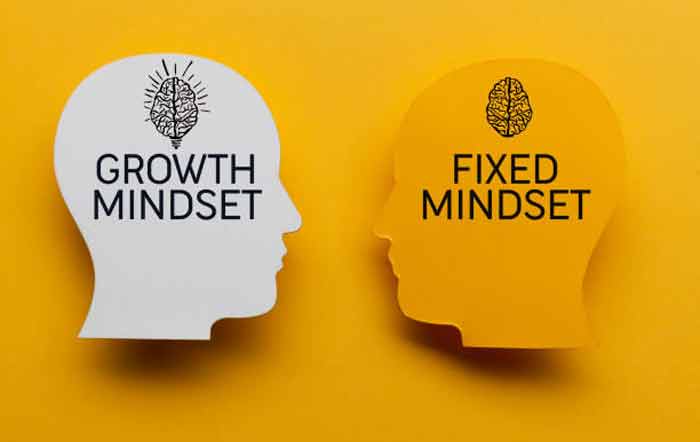Having a growth mindset can help you be successful in life. It can help you learn how to deal with setbacks, improve your grades, and boost your self-esteem.
Boosts self-esteem

Having a “growth mindset” is a great way to improve your self-esteem. It’s the belief that you can grow, learn, and improve your strengths and weaknesses over time. It’s also a great way to avoid being discouraged.
The “growth” mindset differs from a “self-confidence” mindset in that a person with a growth mindset has a positive attitude and believes that they can learn from their mistakes. However, a person with a “self-confidence” mindset is only confident in their own abilities.
A growth mindset is important for both self-belief and performance. It is more of a forward-looking belief that leads to actual progress. However, it’s also important to keep in mind that a growth mindset doesn’t always lead to positive results.
For example, if you have low self-esteem, you may believe that your abusive partner deserves your attention. When you do have high self-esteem, you are confident in yourself and have a high tolerance for failure. You also have the confidence to stand up for yourself.
Reduces fear of failing
Whether you are a student or professional, cultivating a growth mindset can help reduce your fear of failing. A growth mindset is characterized by a belief that one’s abilities are capable of change and growth. This belief is accompanied by a motivation to take risks and to seek challenges. The mindset may reduce a person’s fear of failure by empowering them to overcome obstacles, check out this site.
Research shows that cultivating a growth mindset is a positive way to reduce a person’s fear of failure. This is because people with a growth mindset are more optimistic and feel energized when faced with failure. In addition, they attribute failures to opportunities for growth and improvement.
The study investigated how the mindset affects the relationship between failure and achievement. Participants were drawn from a variety of STEM industries, including aerospace, computer science, engineering, and mechanical engineering. They completed an online survey. They also participated in the Performance Failure Appraisal Inventory.
The results show that students with a fixed mindset have more impostor feelings and are more likely to avoid showing their inability at work. In addition, their relationship to avoid GO is stronger than that of the serial mediating path.
Helps you overcome setbacks
Having a growth mindset is a great way to handle setbacks. It will help you bounce back more quickly and effectively. This can be especially important in today’s fast-paced business environment.
While it is not a secret that you will inevitably face setbacks, it is important to remember that they are not a part of your life. They simply redirect you back on the right path.
For example, a setback can be a good time to take stock of your life. You can also use it to pay it forward. If you have experienced a significant setback, you can use it as an opportunity to make a difference in someone else’s life. For example, if you have experienced a personal setback, you may want to consider setting up a fund for someone who needs a helping hand.
Another way to increase your resilience is to practice mindfulness. This includes taking a few moments to slow down, take a deep breath, and focus on the present.
Improves grades
Having a growth mindset can help you improve your grades. This is because it promotes the idea that one can develop their abilities through hard work. Those with a growth mindset are more likely to try hard even if they don’t think they can do it.
A study from Stamford University in Chile found that growth mindset predicted grades across all socioeconomic levels. The study surveyed over 160,000 students. They found that growth mindset predicts grades in math and reading.
Students with a growth mindset are more likely to take on challenging coursework and work hard to improve their grades. They also use more complex meta-cognitive strategies, which involve analyzing and processing the material more deeply. They also are more likely to work on their homework and ask for help if they don’t understand something.
Conclusion:
A study from Stanford University found that short online courses can help improve grades. They discovered that students who were offered a brief internet-based intervention were more likely to enroll in challenging maths courses and earn better grades.

